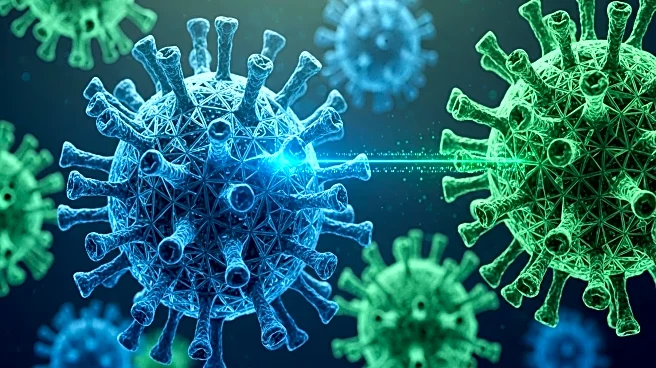What is the story about?
What's Happening?
Researchers from Stanford University and the Arc Institute have successfully created viruses with AI-designed DNA that can target and kill specific bacteria. Using an AI model called Evo, trained on bacteriophage genomes, the team designed 302 virus genomes, of which 16 were able to infect and kill E. coli strains. This marks the first time AI systems have produced functioning genome-scale sequences, demonstrating the potential of AI in bioengineering applications.
Why It's Important?
The ability to design viruses using AI has significant implications for therapeutics, offering a new method for targeting bacterial infections. However, it also raises ethical concerns, as the technology could potentially be used to create bioweapons or uncontrollable viruses. The research highlights the dual nature of AI advancements in bioengineering, offering both promising therapeutic applications and potential risks.
Beyond the Headlines
The ethical considerations surrounding AI-designed viruses are critical, as the technology could be misused to create harmful biological agents. Researchers and policymakers must address these concerns to ensure responsible use of AI in bioengineering. The study also underscores the importance of continued research and development to refine AI models and enhance their safety and efficacy.















